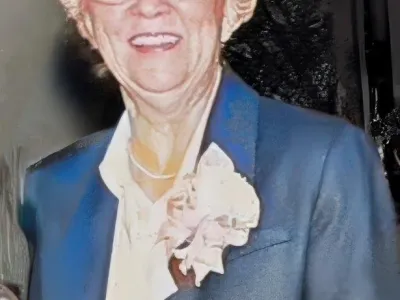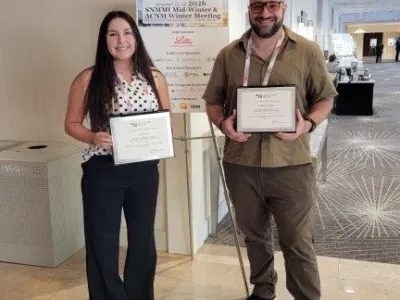For 18 years, Oregon Institute of Technology (Oregon Tech) professor, Robyn Wilde, Ph.D., has been teaching students at Oregon Tech the properties of physics—a prerequisite in many of the engineering and health degrees and an area of interest for many environmental sciences and mathematics majors. To expand his study of the topic even further and allow students realistic learning, Dr. Wilde has applied for—and been awarded—$120,000 from the National Science Foundation’s Research in Undergraduate Institutions (NSF RUI) grant opportunities.
Some of the basic questions still unanswered by physics are: Why is there so little antimatter in the universe? Does gravity affect antimatter in the same way as matter? Beginning this year, Dr. Wilde will start a three-year research investigation that will study particular aspects of how matter and antimatter interact.
In the first year of the investigation, Dr. Wilde will conduct research activities developing the theory of Positronium (Ps) scattering and presenting the results of this research at conferences. Undergraduate students will be involved in this research with the goal of providing them with an opportunity to apply mathematical methods to solve real-world physical problems. The second and third years will involve continued research and supervising undergraduate research projects- which the students will be paid for.
The proposed research will advance the theory of Ps-atom, Ps-molecule and Ps-surface collisions, and help to broaden the understanding of Ps interactions with a larger variety of molecules. This project will study the interaction of the Ps atom with a variety of atoms and molecules, by developing models of these interactions and then calculating scattering cross sections with these targets. The activities will also help to resolve some questions involving low velocity (energy) Ps scattering from rare-gas targets and lastly, to study the interaction of Ps with surfaces for which there is currently very little theoretical understanding.
What does this mean to an Oregon Tech student?
At Oregon Tech, physics courses are necessary for areas of study such as biology, engineering, environmental science, mathematics and medical imaging technology. The project will enable talented undergraduate students at Oregon Tech (most likely mathematics majors) to learn the central aspects of their physics courses, but also the practical application of those courses in the workplace while participating in research they will be paid for.
Not only does this grant allow Dr. Wilde to collaborate with other professionals in the field of physics, but it also encourages pursuing new collaborations. Maintaining industry relationships and association with the working field of study is a key element in education at Oregon Tech.
“The Department of Natural Sciences has been quite successful in providing meaningful opportunities for students to learn how to do research by working closely with faculty,” said Dr. Wilde. “Students learn to apply concepts from many areas of physics, and develop instrumentation and computer skills important for many post-college paths in STEM fields, while learning to think independently, solve practical problems, and communicate clearly. This provides students with a real contribution to science, which is a great experience and gives our students an advantage in the job market and in applying to graduate schools.”
Chair of the Natural Sciences department, Ken Usher, Ph.D., is excited about the opportunities this will provide students. “RUI grants are intended to expand the involvement of undergraduate students in research opportunities, specifically at primarily undergraduate universities such as Oregon Tech,” said Dr. Usher. “That’s what we’re trying to do at Oregon Tech and in our department, and this grant should help us get there.”
Since joining Oregon Tech in 2002, Dr. Wilde has found many creative ways to show students applied physics. From introducing Vernier probes and computer interfaces into physics labs in 2005; to developing physics courses specifically applicable for medical imaging technology students; to working with students creating weather balloons and through a course called “Journey to the edge of space;” Dr. Wilde has helped make the study of physics more understandable for Oregon Tech students.
The NSF grant runs through July 2023. The NSF is an independent federal agency created by Congress in 1950 "to promote the progress of science; to advance the national health, prosperity, and welfare; to secure the national defense..." The NSF funds research and education in science and engineering, through grants, contracts and cooperative agreements. The Foundation accounts for about 25 percent of all federally supported basic research conducted by America's colleges and universities.
Dr. Wilde obtained a Ph.D. and M.S. in Physics from University of Nebraska, and a B.S. in Physics from Utah State University and has many published works.









